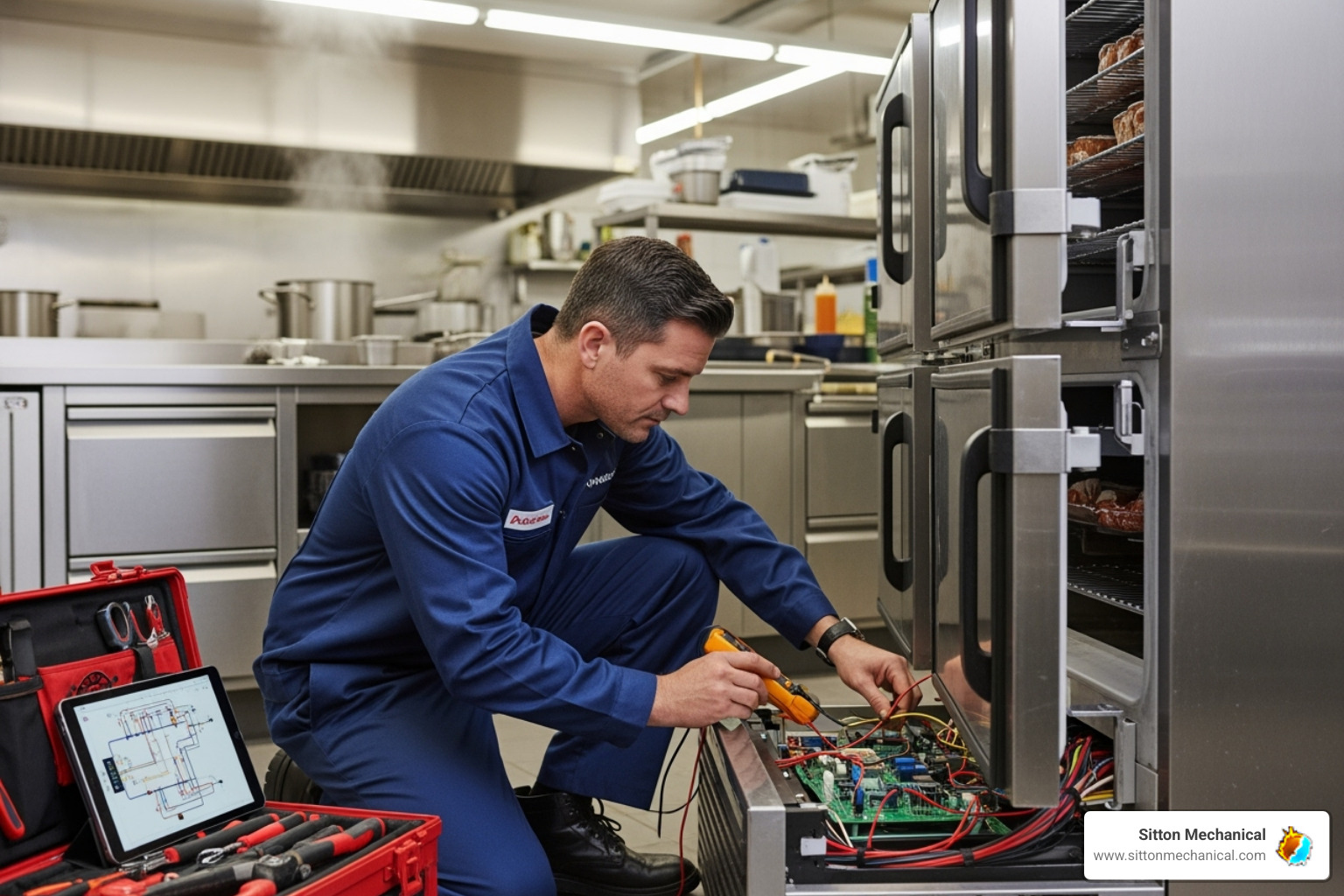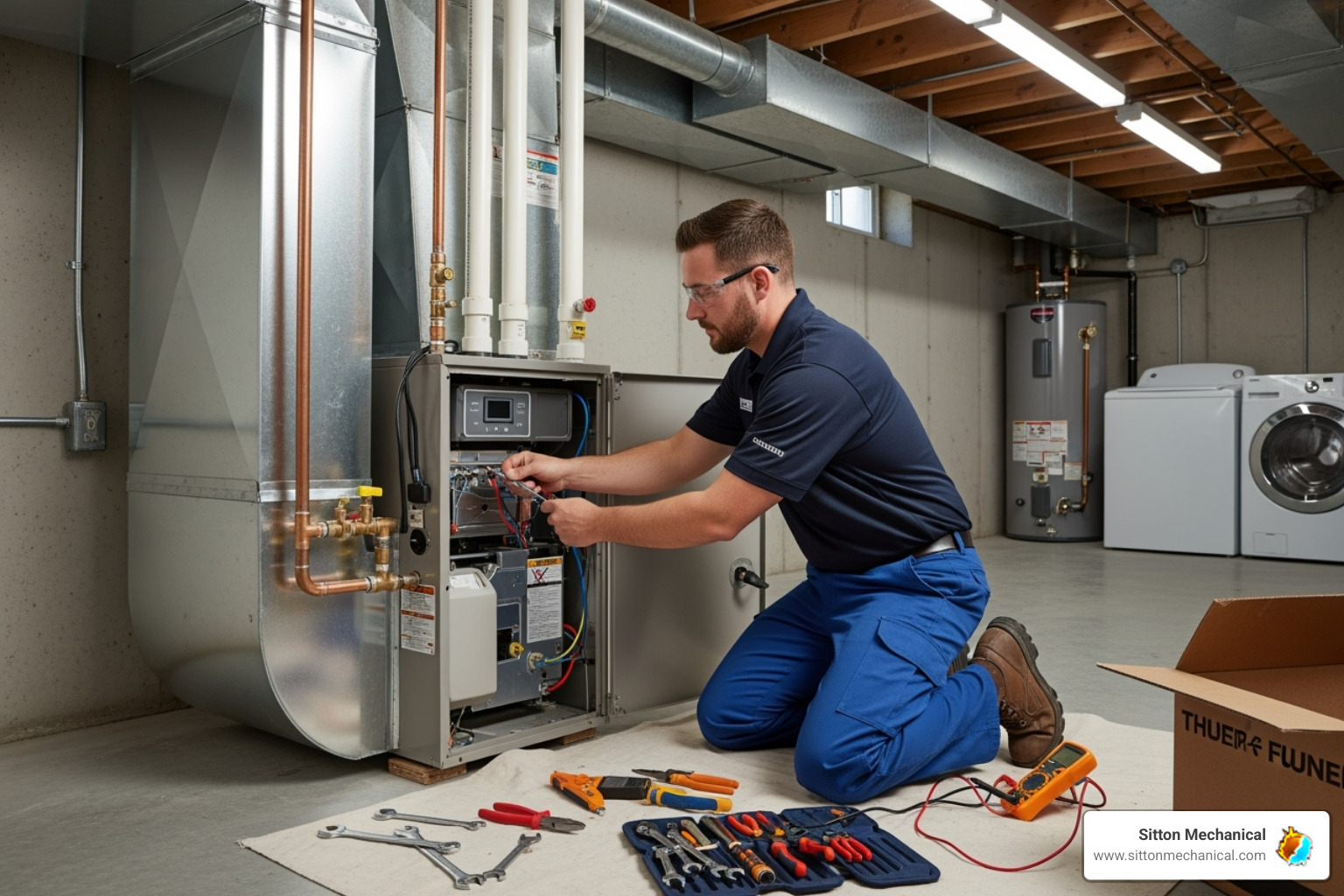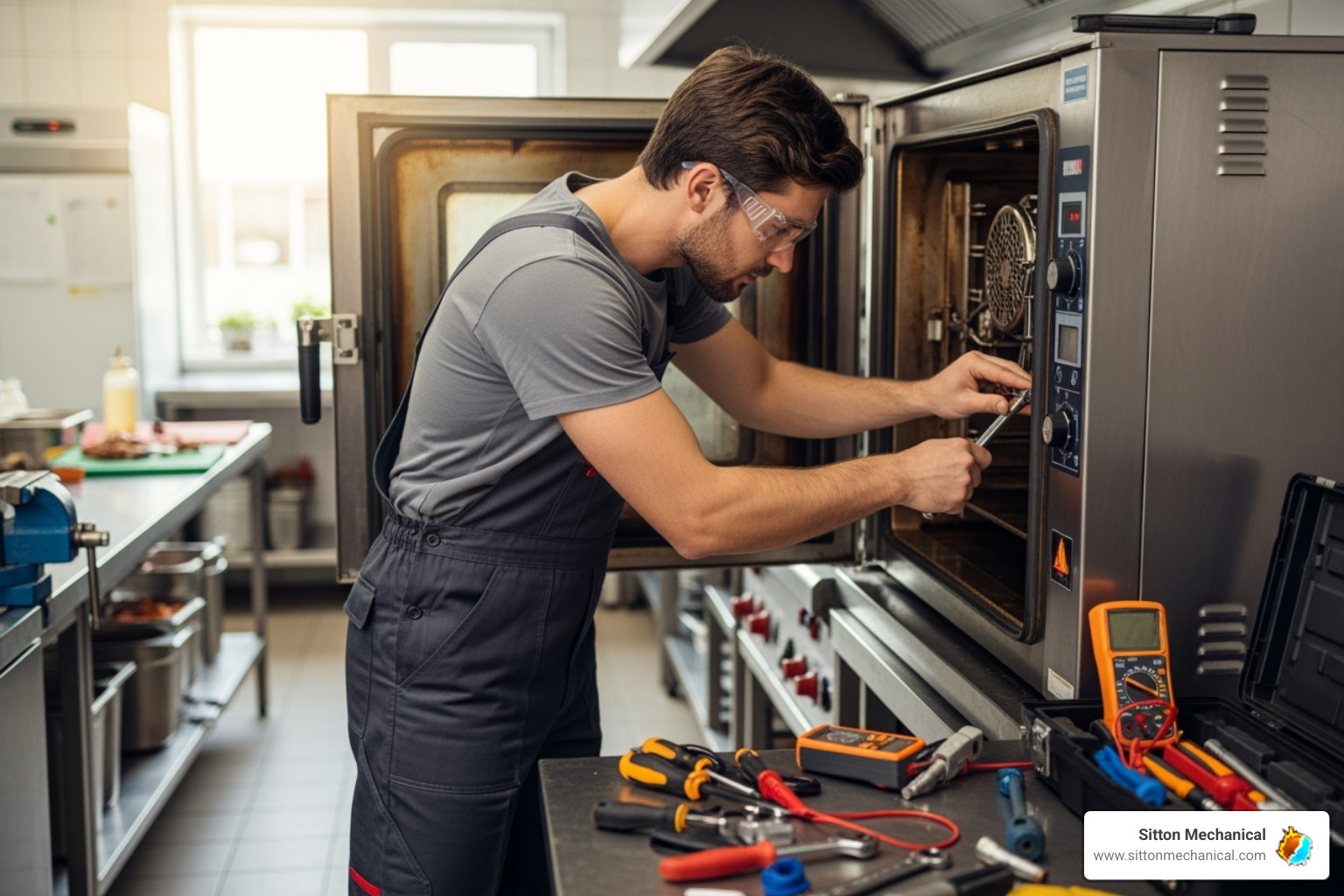Why Reliable HVAC Services Are Essential for Orlando, OK Homeowners
When you need hvac repair orlando ok services, understanding your options and finding the right professionals can make all the difference between year-round comfort and recurring, expensive system failures. Your home's heating, ventilation, and air conditioning (HVAC) system is the unsung hero of your daily life, quietly working to create a healthy and comfortable indoor environment. Here's what you need to know about keeping it in top condition.
Comprehensive HVAC Services Available in Orlando, OK:
- Emergency Repair Services: Breakdowns don't wait for business hours. Access to 24/7 emergency services is critical for restoring comfort and safety, especially during extreme weather.
- AC Repair and Maintenance: From routine tune-ups that boost efficiency to complex diagnostics for cooling system failures, professional AC services keep your home cool through the hottest summers.
- Furnace Repair and Installation: Reliable heating is a must for Oklahoma's unpredictable winters. Services include everything from pilot light issues to complete furnace replacements.
- Ductwork Services: Your ducts are the circulatory system of your HVAC. Professional cleaning, sealing, and replacement services ensure conditioned air reaches every room efficiently without leaks or contaminants.
- Indoor Air Quality (IAQ) Solutions: Beyond temperature, true comfort includes clean air. IAQ solutions like advanced air purifiers, whole-home humidifiers, and dehumidifiers remove allergens, pollutants, and excess moisture.
- System Replacements and Installations: When it's time for an upgrade, professional installation ensures your new system is sized correctly and installed for optimal performance, often with flexible financing options to make the investment manageable.
Orlando, Oklahoma, presents a formidable challenge for any HVAC system. The state's climate is a story of extremes, with relentlessly hot, humid summers and surprisingly cold, unpredictable winters. This constant swing puts a tremendous strain on heating and cooling equipment. When summer temperatures soar above 100°F or a winter cold snap sends them plummeting below freezing, your HVAC system is pushed to its limits to maintain a stable indoor environment.
While most modern HVAC systems are built to last 15 to 20 years with regular maintenance, Oklahoma's harsh weather can significantly shorten that lifespan without diligent care. Common issues spurred by the climate include sudden AC failures during peak heat waves, furnace breakdowns on the coldest winter nights, and steadily increasing energy bills as overworked systems lose efficiency.
Whether you're noticing subtle signs like weak airflow and strange noises or facing a complete system shutdown, finding qualified local technicians is crucial. The best HVAC companies in Orlando, OK, provide transparent, upfront pricing, guarantee the quality of their work, and offer flexible financing to help homeowners manage the investment in their comfort and safety.
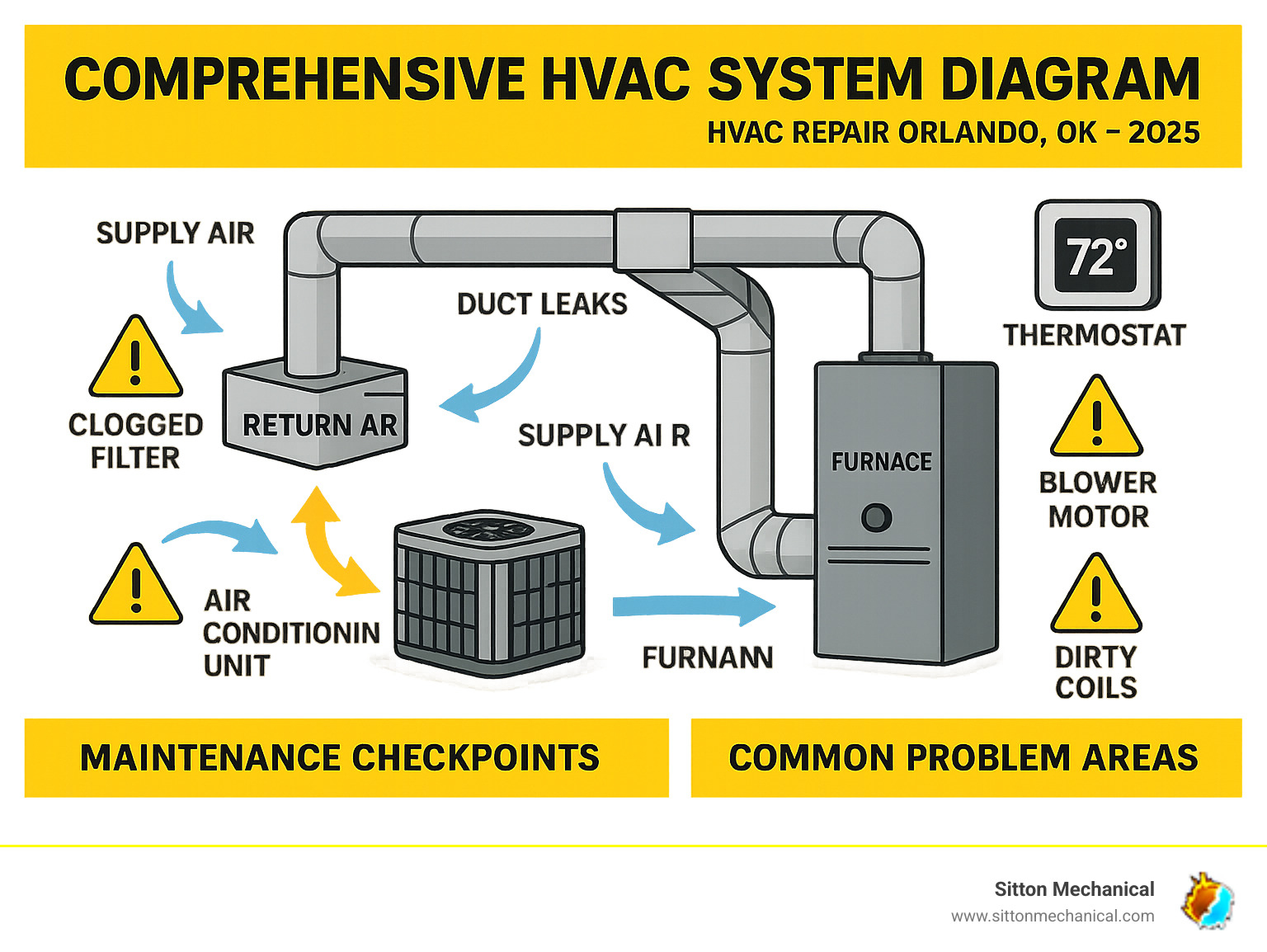
Common HVAC Problems and Warning Signs in Orlando, OK
Oklahoma's climate can be downright brutal on HVAC systems. Our summers don't just get hot – they get scorching, with temperatures that seem to climb higher every year. Your air conditioner works around the clock, desperately trying to keep your home comfortable while the Oklahoma sun beats down relentlessly. Then winter arrives like an unwelcome surprise, bringing cold snaps that demand your heating system jump into action after months of rest.
This constant back-and-forth between extreme seasons puts incredible strain on your hvac repair orlando ok equipment. One day your AC is running full blast, and a few months later, your furnace is working overtime. It's no wonder that systems in our area face more wear and tear than those in milder climates, leading to a higher likelihood of needing professional attention.
Signs Your System Needs Professional Attention
Your HVAC system is actually pretty good at telling you when something's wrong – you just need to know what to listen for. Think of these warning signs as your system's way of asking for help before a minor issue escalates into a major, costly repair.
Weak airflow is often the first hint that trouble's brewing. When you put your hand up to a vent and barely feel a whisper of air, or when some rooms feel like saunas while others are perfectly comfortable, your system is struggling. This could mean anything from a simple clogged filter to more complex problems with your blower motor, collapsed ductwork, or a blockage deep within the vents.
Strange noises are another dead giveaway that something's not right. Your HVAC system should hum along quietly in the background. If it starts making unusual sounds, it's time to pay attention. Banging or clanking could indicate a loose or broken part, like a connecting rod or piston pin. Squealing may point to a belt issue or motor bearing problem, while grinding suggests a serious mechanical failure. Hissing often signals a refrigerant leak. If your HVAC sounds like a haunted house, it's definitely time for a repair visit!
Unusual smells can range from concerning to downright alarming. A burning odor might signal electrical problems, such as an overheating motor or frayed wiring, that need immediate attention to prevent a fire hazard. Musty or moldy smells often point to moisture buildup and microbial growth in your ducts or on the evaporator coil, which can negatively impact your indoor air quality. Sweet, chemical-like odors could mean a refrigerant leak, which not only affects your system's cooling power but can also be harmful.
When your home feels sticky and uncomfortable even with the AC running, you're dealing with increased humidity. A properly functioning air conditioner is a great dehumidifier, removing excess moisture from the air as it cools. If your home feels clammy, your system may be improperly sized, have a drainage issue, or need a refrigerant recharge. High humidity makes the air feel warmer and can promote mold growth.
Frequent cycling – when your system turns on and off repeatedly in short bursts – is a sign of inefficiency and often indicates deeper problems. This rapid cycling prevents the system from properly cooling or heating your home and puts excessive wear on components. The cause could be an oversized system, a dirty filter restricting airflow, low refrigerant levels, or a faulty thermostat.
Finally, an inaccurate thermostat can make your whole system seem unreliable. If the temperature on your thermostat doesn't match how the room actually feels, or if your system ignores your temperature adjustments entirely, the problem may lie with the thermostat itself. It could be a simple calibration issue, a dead battery, faulty wiring, or it might be time for a modern, smart thermostat upgrade.
Catching these warning signs early can save you from much bigger headaches down the road. For more detailed information about what these symptoms mean, check out our guide on Signs You Need HVAC Repair. If you want to understand the root causes behind these issues, our page on Reasons for HVAC Repair digs deeper into the technical details.

Common Issues Faced by Orlando Residents
Living in Orlando, OK means dealing with some predictable HVAC challenges that come with our unique climate patterns. Understanding these common problems can help you prepare for what might be coming and recognize issues before they become emergencies.
AC failure during heatwaves is probably every homeowner's worst nightmare. Picture this: it's 105°F outside, the humidity is crushing, and your air conditioner decides to call it quits. These failures often happen because systems get overworked during extreme heat, leading to refrigerant leaks, capacitor burnouts, or catastrophic compressor failures. The relentless demand pushes older or poorly maintained systems past their breaking point.
On the flip side, furnace malfunctions in winter can turn your cozy home into an icebox faster than you'd expect. Oklahoma winters might not be as predictable as our summers, but they can be just as demanding on your heating system. Common problems include faulty ignitions that won't light, clogged burners that can't produce enough heat, a malfunctioning blower motor that won't circulate air, or a cracked heat exchanger, which can pose a serious carbon monoxide risk.
Refrigerant leaks are particularly troublesome because they're often invisible until your cooling performance starts suffering. When refrigerant levels drop, your AC can't absorb heat effectively, leading to poor cooling, higher energy bills, and eventually ice buildup on the evaporator coils. These leaks require professional attention since handling refrigerant requires special certification and equipment.
Clogged filters might seem like a minor issue, but they're the root cause of many bigger problems. When filters get packed with dust, pet dander, and other airborne debris, your system has to work much harder to pull in and push out air. This extra strain reduces efficiency, increases energy consumption, and can lead to more serious mechanical failures over time. For more information on how your HVAC system impacts your energy use, you can consult resources from ENERGY STAR.
Electrical issues can completely shut down your system without warning. From tripped circuit breakers and blown fuses to failing capacitors or damaged wiring from pests or weather, electrical problems are both common and potentially dangerous. If you ever smell burning or see sparks around your HVAC unit, turn off the power at the breaker box immediately and call for professional help.
Drainage problems often fly under the radar until water starts pooling where it shouldn't be. Your AC produces a significant amount of condensation that needs to drain away properly. When the condensate drain line gets clogged with algae, mold, or debris, water backs up and can cause water damage to your home, rust out your system's components, or trigger an automatic shut-off switch.
Choosing the Right HVAC System and Technician for Your Home
Choosing the right HVAC system for your home in Orlando, OK, involves balancing several critical factors: system efficiency, the size and layout of your home, your budget, and the long-term performance you expect. It's a significant investment in your comfort, health, and your home's overall value. Making an informed decision with the help of a professional ensures you get a system that can handle Oklahoma's demanding climate for years to come.
Comparing HVAC Systems for Oklahoma's Climate
Oklahoma's climate demands versatile and robust HVAC solutions. Different systems offer unique benefits, and the best choice depends on your specific needs. Here's a comparison of common systems:
| System Type | How it Works | Best Suited For Orlando, OK Climate |
|---|---|---|
| Central AC & Furnace | A split system with an outdoor AC unit for cooling and an indoor furnace (gas or electric) for heating. Air is distributed via ductwork. | This is the most common and effective setup for Oklahoma, providing powerful, dedicated cooling for extreme summers and reliable heating for cold winters. |
| Heat Pump | An all-in-one system that moves heat. In summer, it moves heat out of your home. In winter, it reverses to pull heat from the outside air into your home. | Excellent for energy efficiency, especially in milder winters. Often paired with a backup furnace (dual-fuel system) for deep freezes, making it a versatile option. Learn more about Geothermal Heating and Cooling Benefits. |
| Ductless Mini-Splits | Consists of an outdoor compressor and one or more indoor air-handling units mounted on walls or ceilings. Each indoor unit cools or heats a specific zone. | Perfect for homes without existing ductwork, for new additions, or for creating different temperature zones in your house. They are highly efficient but may require multiple units for a whole home. |
Proper AC Installation: Ensuring Comfort is just as important as the system you choose. An improperly installed unit, regardless of its quality, will fail to perform efficiently and will likely have a shorter lifespan.
How to Find a Reliable HVAC Technician in Orlando, OK
Finding a trustworthy and skilled technician is the most important step in any HVAC project. The quality of the installation or repair will directly impact your system's performance, efficiency, and longevity. Here are key steps to follow when choosing a professional:
- Check Online Reviews and Local Recommendations: Start by looking at reviews on Google, Yelp, and other platforms. Ask friends, family, and neighbors in the Orlando area for their recommendations. A company with a strong local reputation is often a safe bet.
- Verify Licenses and Insurance: A reputable HVAC contractor must be licensed and insured in Oklahoma. This protects you from liability in case of accidents or property damage during the job. Don't hesitate to ask for proof of their credentials.
- Inquire About Experience and Specialization: Ask how long the company has been in business and about their experience with your specific type of system. A technician with years of hands-on experience is better equipped to handle complex issues. See what it means to have Expert HVAC Repair by Our Pros.
- Get Upfront Pricing in Writing: Avoid companies that give vague estimates over the phone. A professional technician will inspect your system in person before providing a detailed, written quote that outlines all costs for parts and labor.
- Ask About Warranties and Guarantees: A reliable company will stand behind its work. Ask about warranties on parts and labor for repairs, as well as manufacturer warranties for new installations. A satisfaction guarantee shows confidence in their service quality.
Ready to Transform Your Home?




